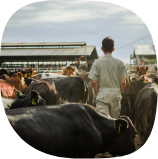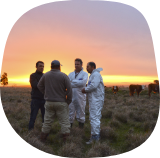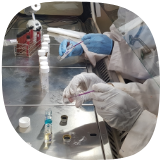OUR VISION
Animal health,
at the heart of
global challenges
Animal health is more fundamental than ever to the development and well-being of human populations around the world. The OIE supports the Veterinary Services of its Members so that they can address current and future global challenges.
Animal health plays a leading role in maintaining global health, socio-economic and environmental balances. To safeguard it, the OIE works hand in hand with the Veterinary Services of its 182 Members, helping to make our relationship with the animal world a source of sustainable development.
By building on the structural work completed within the framework of its 6th Strategic Plan, the Organisation aims to better respond to the global challenges of the coming decade. Many of these initiatives are already fully aligned with several of the Sustainable Development Goals (SDGs) of the 2030 Agenda. Now, the Organisation is redoubling its efforts to restructure and improve the global governance of animal health and welfare.

Under the 6th Strategic Plan, the OIE has achieved so much, including the development of the new OIE-WAHIS platform, the improvement of Veterinary Services’ capability worldwide, and the establishment of a tripartite agreement on antimicrobial resistance with FAO and WHO.
As we prepare to implement the 7th Strategic Plan, the OIE must remain agile and embrace emerging issues in order to build on these advances, for the benefit of all Members.”
Animals as drivers
of human development
Because we interact with animals daily, both domestic and wild, their health concerns us from every perspective. Human health, food security, prosperity and respect for the environment are all inextricably linked to our worldwide governance of animals, a governance that the OIE has been guiding for nearly 100 years.
Safeguarding human health in a globalised world
Many established human infectious diseases originate in animals, and, in the case of vector-borne diseases, for example, climate change is having a considerable impact on their spread. In addition, almost all new infectious agents that emerge in humans have an animal source. Among these diseases, rabies continues to kill nearly 59,000 people a year, mostly children.
The growing world population and increasing trade promote ideal conditions for disease transmission. To ensure health security in this era of globalisation, the OIE has set out a regulatory framework by establishing international Standards, recognised by the World Trade Organization (WTO).
Without impeding the smooth flow of trade, these standards play a major preventive role in protecting the health and welfare of animals, and thus of humans. From 2020, the gradual establishment of an Observatory of Standards will enable more effective support to Members in the challenges they meet with regard to OIE Standards implementation.
Nearly 1/5th
of the world’s population is involved in livestock production
or the processing and marketing of food of animal origin.
Livelihoods and food security:
beyond health impacts
Not all animal diseases pose a direct risk to humans, but they may still have significant socio-economic impacts. For some people, animal health is not only a health issue: their jobs and livelihoods depend on it.
Moreover, since the global demand for animal protein continues to increase, the world’s food security remains heavily dependent on animal health. Meeting this growing need, and pursuing the Sustainable Development Goal 2, “Zero hunger”, means reinforcing animal production and health systems – a mission that the OIE is taking on by strengthening the capacities of its Members’ national Veterinary Services.
Towards more sustainable models
As society becomes increasingly aware of the challenges posed by climate change, now and in the future, it has high expectations for sustainable animal production systems that respect both the environment and animal welfare. The need to feed a growing number of people, and to feed them better, must be combined with the urgent requirement to protect our terrestrial and aquatic ecosystems. Here, too, animal health and production systems have a key role to play, assisted by guidance from the OIE. Optimising and harmonising the processes of Veterinary Services, facilitating interdisciplinary dialogue and encouraging integrated approaches allows us to build more effective, sustainable and resilient models.
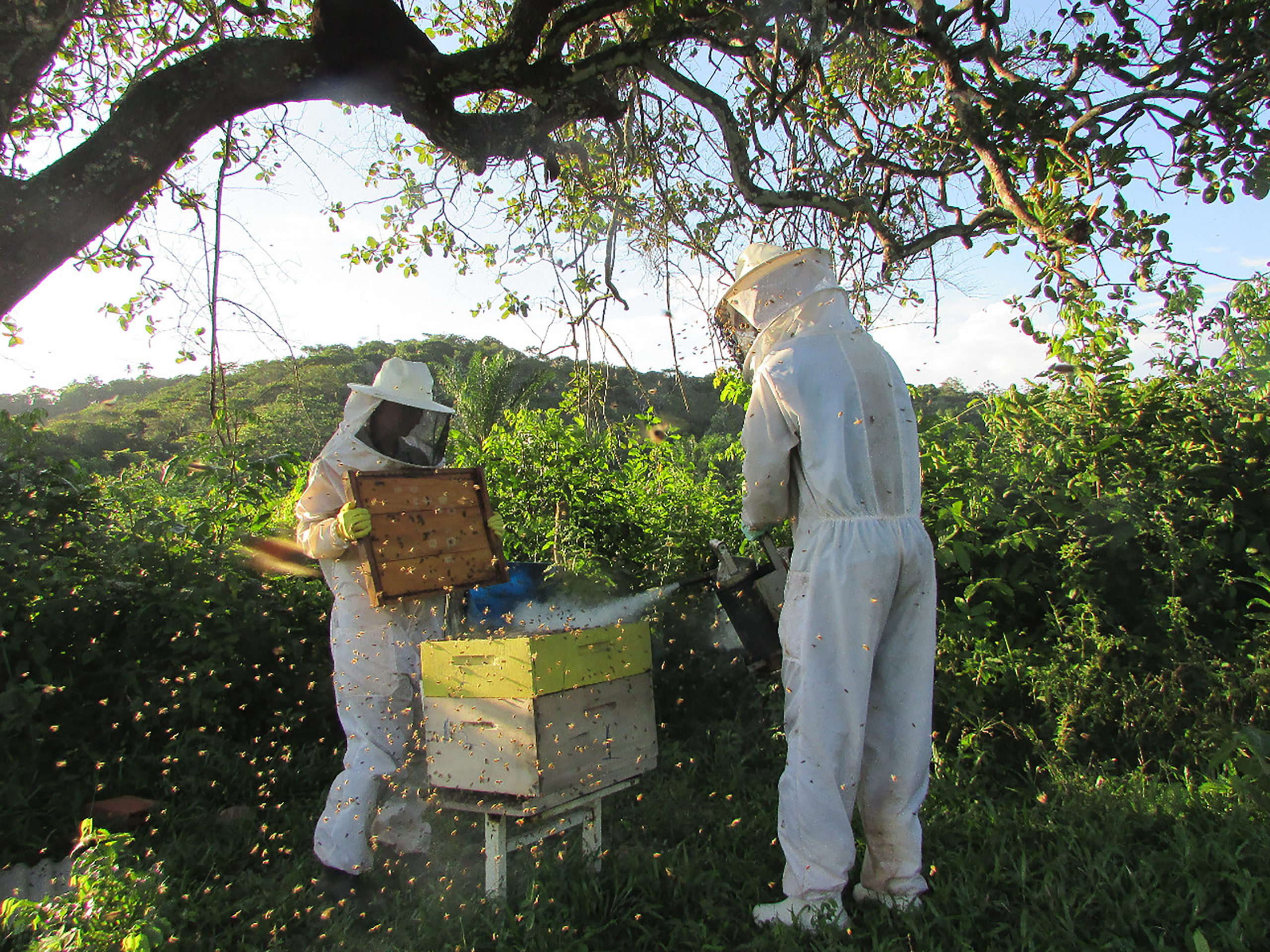
The OIE assists Veterinary Services to be better prepared to respond to animal health challenges of the future.
.
More effective, sustainable and resilient animal health systems
The OIE’s mandate is to improve animal health and welfare worldwide. At a time when numerous changes are disrupting our communities and ways of life, the OIE continues to adapt its work to the evolving challenges of veterinary public health, to provide more effective support to Veterinary Services through these changes.
Continuing support for Veterinary Services
As essential links to animal health and welfare, national Veterinary Services are still not well understood by policy-makers, remaining under-funded and under-represented in the international agenda. The OIE takes their specific needs into account, principally through the PVS Pathway, which identifies the strengths and weaknesses of these Services and enables the Organisation to propose tailored solutions.
Moreover, the OIE strengthens the capacities and resources of national Veterinary Services through specialised training and by creating tools for advocacy and raising awareness.
Scientific expertise that draws on other disciplines
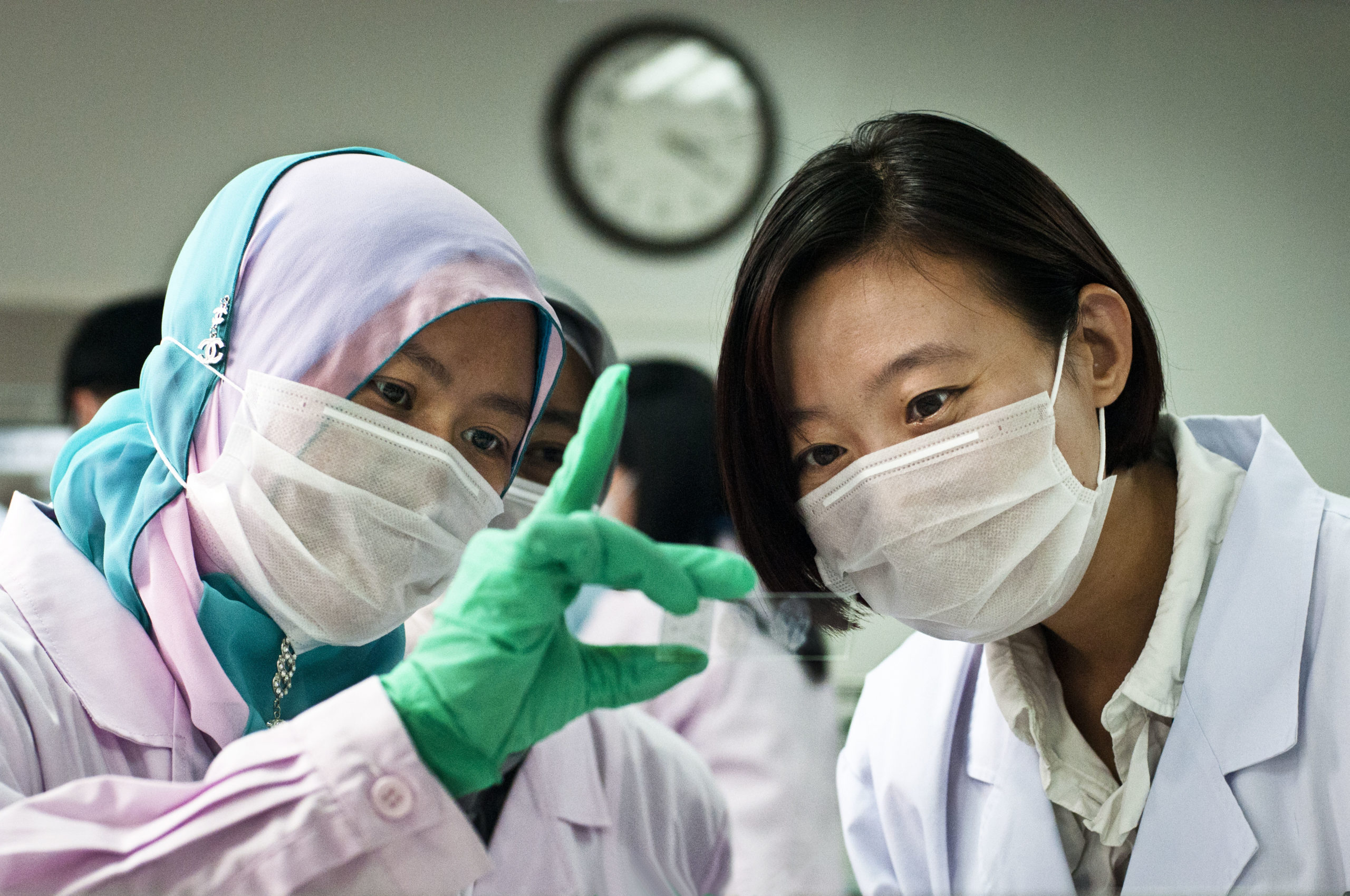
The OIE calls for varied and complementary expertise to address global challenges.
Today’s challenges confronting animal health professionals are complex and their components are constantly changing. For example, climate change affects livestock and food production systems as well as the distribution and prevalence of vector-borne diseases. The responses to these complex challenges cannot be considered in isolation, as pertaining to a single sector or country. Collaboration, coordination, communication and concerted action are required across the different sectors, calling for an interdisciplinary and cross-sector approach. The support given by the OIE to its Members’ Veterinary Services is based on rigorous, independent, scientific expertise that increasingly incorporates the intersectoral nature of global challenges.
The veterinary expertise mobilised is enriched with social, economic, ethical, legal, cultural and environmental knowledge, while maintaining a “One Health” approach that considers animal, human and ecosystem health as a public good.. Through this integrated approach, the OIE places animal health at the heart of such global challenges and provides national Veterinary Services with the knowledge and support they need to raise awareness and mobilise decision-makers and actors in the field.
Towards better governance of global animal health
Since 2016, the Organisation has strengthened its network of partners and taken international cooperation and multilateralism as guidelines for its interventions. The OIE prefers targeted partnerships for impact. The Organisation’s long-standing Tripartite Alliance with the World Health Organization (WHO) and the Food and Agriculture Organization of the United Nations (FAO) develops global action plans, for example, on combatting antimicrobial resistance. This collaboration has been strengthened by signing a Memorandum of Understanding to include new subjects of common interest. Today, the OIE’s partnership choices are diversifying and opening up to other sectors with complementary expertise.
The global data platform offered by its World Animal Health Information System (WAHIS) makes the OIE an essential bridge between field actors and policy-makers. It provides real-time information on the worldwide animal health situation. From 2020, on completion of its upgrade, data accuracy and analysis will be refined to forge a vital tool for good governance of animal health and to enhance the relevance of veterinary data provided to decision-makers.
The OIE responds to global challenges
More up-to-date monitoring and data management tools
In 2016, to support Veterinary Services more effectively, the OIE launched the modernisation of its monitoring and data management tools, as well as its internal processes. These data are now more readily accessible, for example, to better quantify and characterise the use of antimicrobials in animals. From 2020, the OIE will consider cross-referencing its data with those of other partner organisations, as a priority issue.
